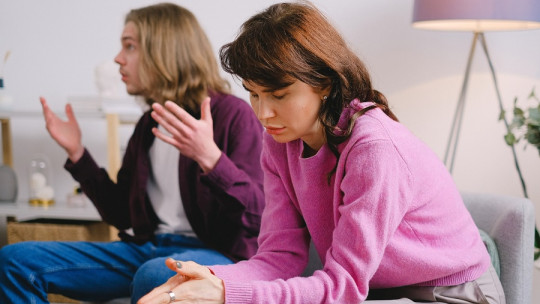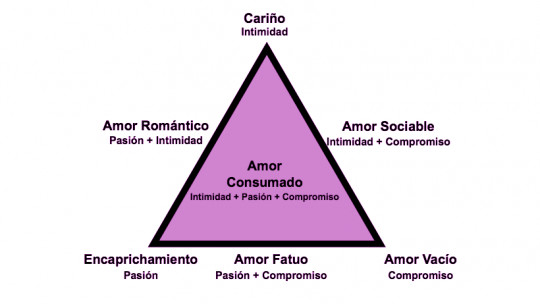Could you tell how long falling in love lasts? Although it may seem like a question with a very subjective answer, the truth is that science has tried to answer this question. In this article we will talk about it.
To do this, we will explain what happens at the brain level when we fall in love, and why this is also so related to the “falling out of love” stage, which gives way to the stage of love as a couple.
In addition, we will also talk about the three conditions necessary for falling in love to occur, according to two researchers on the subject, and we will answer the question “who is most likely to fall in love with.”
The act of falling in love
When we talk about love, we are actually referring to multiple types of love ; However, one of the most widespread forms in our society when we talk about abstract love (and what we all think about) is passionate love or falling in love.
The famous butterflies in the stomach, decreased appetite, feeling of euphoria or excitement thinking about someone… Has it happened to you? They are just some of the symptoms of falling in love, a process through which We idealize a person and feel an uncontrollable desire to be with them
But have you ever wondered how long does falling in love last? This is a question with a difficult answer; Furthermore, the possible answer to this question is not universal either, since there are studies that demonstrate one thing and others, another. However, Experts do agree that falling in love has an expiration date
How long does falling in love last more or less?
If we ask people on the street, they will surely provide us with different answers; Many people think that it lasts between 2 and 3 years. Others, that it simply lasts the time during which you discover the other person and learn from him/her.
But what does scientific research say to the question of how long does falling in love last? To answer this, we have turned to different experts and studies that address the topic in question. Raúl Martínez Mir, doctor in Basic, Clinical and Psychobiology Psychology from the Department of Psychology and Communication Sciences of the University of Sonora (Unison), states that Falling in love (as a passionate state) lasts between six and eight months
After this time, the so-called love appears, which is the next stage, where the love of a couple itself appears. Mir alludes to a neuroscientific explanation, and affirms that these months are the time that the biochemistry of love lasts in our brain.
Other authors, researchers in this field, such as the anthropologist and biologist Helena Fisher (love researcher par excellence, in the field of neurosciences), trying to answer how long falling in love lasts, believe that the duration of falling in love is between two and three years, with a maximum of four
This would also be the time that our body (and brain) can “withstand” or endure the chemical bomb that is produced in our brain through numerous hormones, and which we will see below.
The biochemistry of love
To answer how long falling in love lasts, we must turn to brain biochemistry. So, what happens in our brain, on a biochemical level, when we fall in love? Many things!
But we are going to mention the most notable ones. Initially our brain secretes serotonin , the so-called “hormone of happiness”; Little by little, it adapts to this feeling of euphoria (similar to what drug addicts feel when they get their dose of drugs), and serotonin levels decrease.
With this, the initial infatuation declines until it disappears (the brain gets used to this sensation, which is no longer so exciting), and then the aforementioned love for a couple appears (the one that no longer brings butterflies in the stomach).
The aforementioned findings, however, are not the only ones that would explain the biochemistry of love. Other research reveals that at the beginning of a relationship, and during falling in love, sensations of great intensity appear not only due to high levels of serotonin, but also due to high levels of dopamine, testosterone and norepinephrine in the brain.
All this brain chemistry It would also make us feel euphoric, hyperactive and without the desire to eat These studies also mention that serotonin levels would be lower than usual (contrary to what was previously explained), which would explain why we become obsessed with the other person (that is, with the object of our love).
Falling out of love on a biological level
We have seen how biochemistry influences the question of how long falling in love lasts, but, What happens at the brain level in the “falling out of love” phase, or when the love relationship is consolidated?
When we are already settled in the phase of love as a couple, according to Mir, Doctor in Basic Psychology, that is when high levels of oxytocin are secreted, the hormone that would allow the relationship to be consolidated and maintained over time.
Mir also indicates that it has been shown that in this process a hormone called oxytocin begins to appear in the brain which has to do with a more stable relationship.
Thus, biologically our body (and brain) could not withstand such an exciting situation for a long time, which is why a reduction in the explained chemical overload would occur in the brain.
Love: 3 necessary conditions
We have seen how long falling in love lasts, but what does it take for it to happen? According to researchers Hatfield and Walster (1981), Passionate love or infatuation is easily activated if three conditions are present
1. Exposure to romantic images and models
These images and models lead the person to hope that one day they will find the right person and fall in love with them. We are talking about the family and cultural beliefs which are expressed in everyday comments, in narratives, in stories, songs, films, etc.
2. Contact the “appropriate” person
And you may wonder, who is the “appropriate” person? Based on what can it be considered “appropriate”?
All of this has a strong cultural determination (cultural and social factors greatly influence); However, there are authors who believe that all this is determined by unconscious evolutionary factors (similarity, physique, healthy and young people, sexually available, with status and resources…).
Alluding to more biological themes, Many experts believe that the so-called genetic determination also influences which is based on the idea that we “search” (consciously or unconsciously) for a suitable person to reproduce with.
However, this idea would be insufficient to explain falling in love, since it leaves many questions unresolved: what happens to homosexual couples? And the heterosexuals who don’t want to have children?, etc.
3. Strong emotional activation
This emotional activation occurs if the two previous conditions are met, and is usually caused by a feeling of fear, frustration (Romeo and Juliet effect) or sexual arousal.
Who do we fall in love with?
Beyond what it “needs” to fall in love and how long falling in love lasts, we find it interesting to delve a little deeper into the issue, and to do so we are going to refer to the findings of psychologist Robert J. Sternberg to talk about “who are we most likely to fall in love with?”
In the 90’s, This psychologist developed a new perspective on love, which was based on the principles of narrative therapy This theory is exposed in her work “Love is like a story. A new theory of relationships” (1998).
Here Sternberg proposes the idea that human beings tend to fall in love with people whose stories or conceptions of love are similar to ours, but in whom there are also differences that can help them perform complementary roles.
Sternberg too emphasizes how important it is to discover the ideal couple stories (which many times are not verbalized), when analyzing possible love conflicts that may arise.
And what about sex…?
We have talked about how long falling in love lasts, but what about sexual desire?
According to the results of research carried out by sexologist Dietrich Klusmann and his team, Women lose sexual desire after four years of relationship something that does not happen with men who, according to the study, do not lose it directly (it remains intact).
The explanation that Klusmann gives to these events has an evolutionary tinge; According to him, women seek to seal the bond with their partners, while men’s goal is for their partner to be faithful to them.









